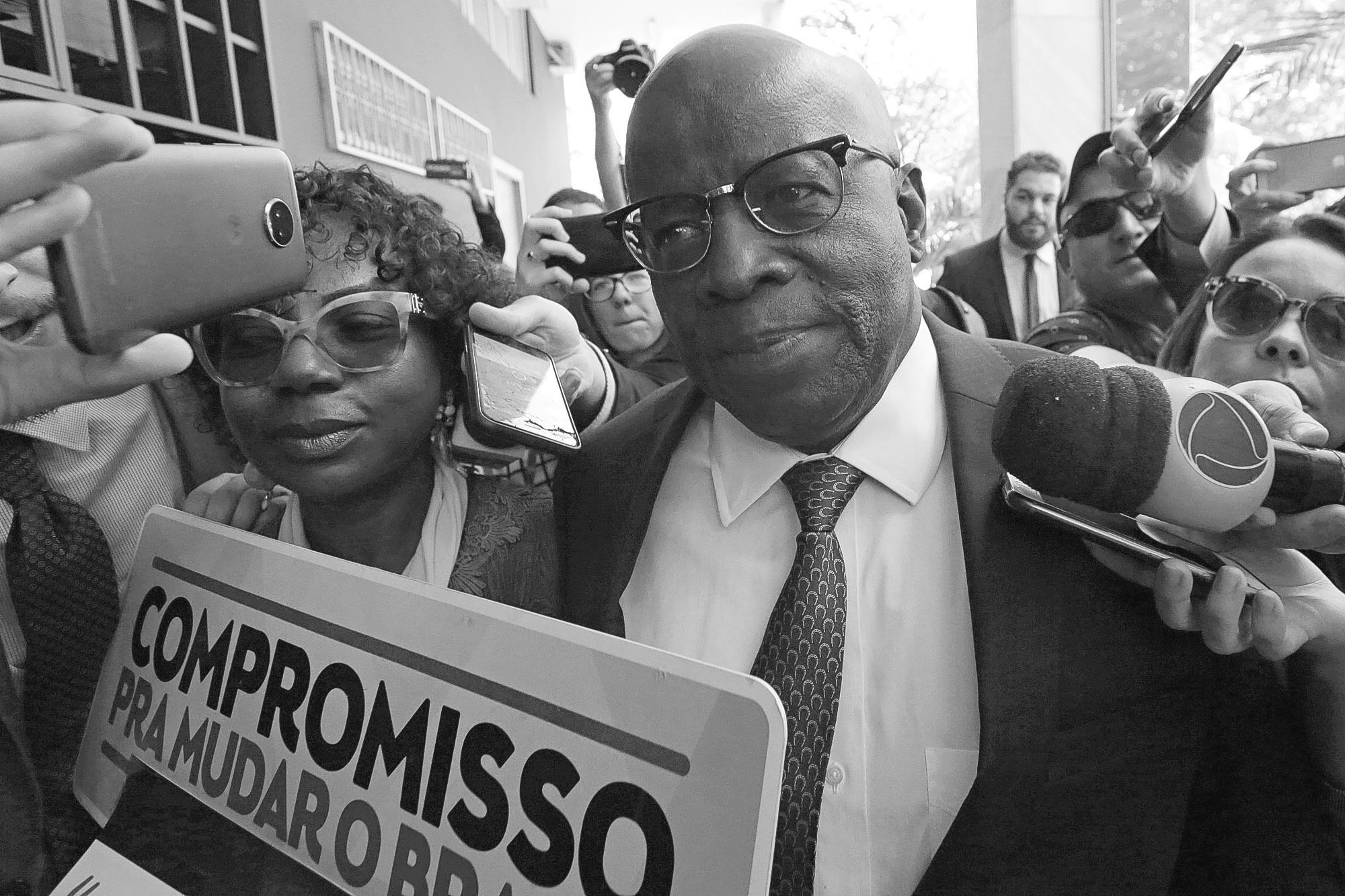
By MAURICIO SAVARESE
Associated Press
SAO PAULO (AP) — Brazil’s first black Supreme Court justice said Thursday he is considering a run for president, which could be a significant turn since the widely known retired justice appeals to both supporters and detractors of the current front-runner, jailed former President Luiz Inacio Lula da Silva. Many people had floated former justice Joaquim Barbosa’s name as a contender for October’s election, but he had never publicly spoken about it before.
But, though he raised the possibility of being a candidate, Barbosa added, “I still haven’t managed to convince myself.” The comments came as Barbosa talked with journalists during a meeting in Brasilia of the Brazilian Socialist Party, which he joined early in April to give himself a base for a campaign. The 63-year-old Barbosa, who retired from the Supreme Court in 2014, has never run for office. Da Silva, a popular leftist who still leads preference polls after being imprisoned this month on a corruption conviction, won’t likely be allowed to run by the electoral court.
On Sunday, a Datafolha institute poll gave Barbosa at least 8 percent support. He called that figure “very good.” Brazil’s presidential election is expected to draw up to 16 candidates, splintering the vote. It was unclear whether the Brazilian Socialist Party can gather enough support for Barbosa to qualify as a presidential candidate. If not, Barbosa could run for a different position as the party focused on gubernatorial and legislative races instead. One of the key members of the party, Sao Paulo state Gov. Marcio Franca, said after the meeting that right-leaning candidate Geraldo Alckmin should get its support instead. Franca was Alckmin’s deputy until April 7 and will run for re-election in Brazil’s most populous and richest state.
Barbosa has voiced support for social programs identified with the left, but he also gave harsh convictions for corruption to high members of da Silva’s administration, something that won him support among conservatives. Judges, prosecutors and police investigators have become more popular in Brazil since the unfolding of the “Car Wash” corruption probe in 2014, investigating overpriced contracts signed by state-owned oil giant Petrobras and major constructors. But with Da Silva’s graft conviction coming out of that investigation, his supporters contend he was railroaded to keep him out of the presidential race and say judicial overreach is interfering with Brazil’s political matters.



















